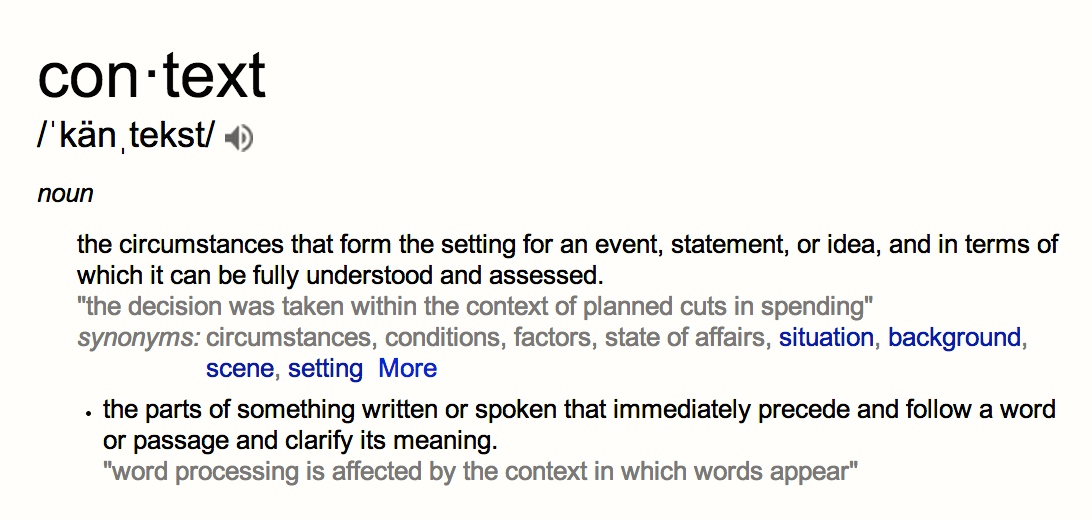
The edge of an idea… of a discovery or just the close of a day? What do you see? Hope your week has been a good one.

Decisions don’t always work the way you intend them to. That’s a good thing, it keeps life interesting and it keeps our imaginations flowing. For instance, the image above comes from a corner of my garden. A huge thorn had started to grow without my noticing. By the time it came to my attention it was covered in buds. I’d like to see the blooms on that, I thought, I’ll dig it up later. Yes I’m like that, weeds are only plants you don’t want.
Well later came and having satisfied my need to see the bloom I headed toward the thorn, shovel in hand. I found a bee on it. No I’m not afraid of bees, quite the contrary. I like bees and they’ve been having a hard time of it lately so it seemed a shame to disrupt this one. So, instead of digging up a thorn I replaced my shovel with a camera and captured this shot. I thought it was rather appropriate for this post.
You see I had a completely different post on decision making planned for this week. It’s a good post and you’ll see it in September. Between now and then I’m going to take a bit of a pause. I have a number of projects underway that are all important to me. This blog is one of them. In an effort to manage all of my projects I wrote several blog posts in advance, but as my fellow bloggers know, there’s more to blogging than writing. The thing is, I simply don’t have time for everything at the moment, so I thought,
I don’t want to do any of those things.
Decisions are interesting things. You don’t always know where they will lead you. Digging up a thorn or taking a photo. Here’s my decision. I’m going to take a photo every week. I can’t promise you beauty, invention or drama. I’m an amateur, amateur photographer but, I will make an effort to share something that caught my eye, attention or imagination. Then I’ll ask you to share what you see, where your imagination lead you in the comments. I won’t always be able to respond here, but I will always read your comments and I very much appreciate them.
See you soon.

The term, synchronicity comes from Carl Jung, who first coined the phrase in the 1920s. Jung saw synchronicity as two or more events that are meaningfully related, though they may not be causally related. He first developed the idea while treating a patient who dreamed of a golden scarab. During the session, as she described her dream, Jung found a golden scarab. The insect was rare for that part of the world and the timing was a striking. Jung saw synchronicity as more than random coincidence and noted that it is more likely to happen when we are in a heightened emotional state.
Synchronicity and serendipity are like sisters, similar but not quite the same. Serendipity is the sweet and surprising little sister, synchronicity is the big sister with edge. If serendipity is the coming together of opportunity at just the right moment, providing you are ready to see it, then synchronicity can be opportunity or threat at the best or worst moment. It’s like waking up with a brilliant idea, then finding that your client has had the same idea, but so has your competition.
Synchronicity at the pool could be about a wonderful ballet that defies gravity. Those beautiful twins who are both mirrors and mimics in the water. Synchronicity is the dance of fireflies performed to the music of night creatures. It is also the crowd that becomes a mob.
To what degree we are creatures of synchronicity is unclear, but like flocks of birds or schools of fish we are connected to one another. I think we send things out into the universe and the universe responds. That’s the beauty and horror of synchronicity. If we send negativity and aggression we will find violence and rejection. If we send joy and peace, those things will also wing their way back to us.
My single mindedness at work has helped me avoid pitfalls while those around me stumbled and fell. It has also unnecessarily excluded me. My love of team has had me proudly singing in a choir of ideas and it has caused me to chase red herrings as part of a pack. That’s the challenge of synchronicity, it doesn’t tell us when to follow and when to lead. It isn’t always good though it is often appealing.
The older I get, the less often I find myself engaging in negative collective behaviour. I’d like to think it’s a sign of growing wisdom. More likely, it’s a consequence of my profession. The communications sector forces me to continually scan the horizon. What’s coming, what’s trending, what’s sinking, what’s changing are some of the questions I have to ask on an ongoing basis. When I stop asking, then things like LinkedIn, Facebook and Pinterest show up and change all the rules of engagement. Asking means I learn all kinds of things along the way, some pertinent for now, others relevant for later.
Looking outward on a regular basis also disengages me; it sets me a drift. When strange or counterproductive decisions are made back at home base, that’s what they look like to me, counter productive and strange. I don’t get distracted by the internal culture or prevailing paradigm because I’m not embedded in them.
Strong personal values do the same thing. They ground you, give you a moral compass when things get foggy. They inform your decisions and guide your actions. When synchronicity wants to pull and lull you, your values will provide guidance.
What about you? Have you ever gotten into synch at just the right time? Had an amazing coincidence that left you surprised or inspired? Or have you travelled down a road only to ask yourself later, “What was I thinking?”
Image: Silhouettes – School of Parrotfish (Photo credit: CAUT)

When did I become an advocate for slow and expensive? It was a gradual thing. I don’t really think it was a question of choice, as much as, a rebellion against the alternative, fast and cheap.
For reasons that remain elusive to me, fast and cheap have become beacons for consumers. Fast and cheap food has been a staple for years. Forbes magazine rates McDonald’s as one of the top five brands in the world. But fast and cheap have begun to invade sectors that make no sense to me at all. What is the point of speed dating? Are you looking for a fast talker? What about dating sites that state, with pride, “We don’t waste your time with a lot of questions.”
Hmmm… even if I met a man who had been vetted through friends or family, I’d want him to answer a few questions, but then I think there is value to be had in that four-letter word, time. Yes, call me old fashioned, but I think you get what you pay for and you pay with time and or money for quality.
Which takes me back to fast and cheap. Let’s start with fast. So what’s the rush? When did speed become synonymous with good? Like any Luddite might, I blame technology, or more to the point, I blame our inability to separate what’s good for technology from what’s good for us. Do we think that the speed at which our computers boot up, we move through the Internet, we download movies can some how be extrapolated to apply to the real world?
What if job interviews were a minute long and applications asked only one question? What if we only aged our scotch for a year and all wine was new? Perhaps all steak should be served rare and visits to the doctor to should be marked in seconds not minutes. Slow growing plants like evergreens should be eradicated, while those persistent and pretty dandelions should be encouraged. Education need not take years… whoa! Some things simply take time. As a woman or as a man, do you want to be thought of as fast? Many things are better because they don’t happen quickly.
The appeal of cheap is a complete mystery to me. Cheap has never been a harbinger of value. Cheap is the car sales man in the loud jacket steering you towards a lemon. Cheap is the invasive and cloying scent of cologne purchased for a song. Cheap is the derogatory term we use on the boss that does not pay you you’re worth. Cheap is the umbrella that breaks the first time it rains. If someone called you cheap, would you take it as a compliment? What would you think if it was applied to your work?

Therein lies the rub for me. Cheap and fast may be popular, but it’s not how I want my skills perceived. It’s not how I brand myself. I’ve never wanted to be considered by any of the other meanings attributed to cheap either. I am not shoddy, stingy or heaven forbid, inexpensive. My abilities to assess and respond were not acquired quickly. It has taken me decades of experience, years of research and more failures and successes than I care to count to build my body of professional knowledge. I save my employers and clients time and money because I take my time and apply my years of hard earned knowledge to the challenges they face. In short, what I offer is neither fast nor cheap.
You are no doubt thinking that happier times can be found in more modest approaches. Why not aim to be moderately fast and reasonably priced? Doesn’t that just roll off the tongue? The problem with moderate and reasonable is that they do not capture the imagination. They make me think of mediocre. Even when we purchase things in the mid range, we’re really hoping they are about as good as the higher priced item, but a better price. We all love getting a good deal and I’m no exception.
When promoting a brand you have a few ways to go, you are appealing to a unique niche, you are best in class or you are cheaper. If you are offering something unique, you are not competing on price. If the market is competitive you are left with quality or price. Unless you are willing to fight on price, a war no one wins, then you are left with quality.
Quality is rarely if ever associated with fast and cheap, but it has kept company with slow and expensive.
Which would you rather be, fast & cheap or slow & expensive?
Image: A yacht in Lorient, Bretagne, France (Photo credit: Wikipedia)

Today we celebrate Canada’s birthday. Happy 147th Canada! I could discuss the wisdom that comes with age, the importance of celebrating milestones or indeed, Canada’s history, but one of the things I’ve always liked about Canada is our appreciation of a good discussion, we like to think.
Canadian Politics
Although Canada became a country in 1867, we did not gain our full political freedom from the British cabinet until 1982 when the Constitution Act patriated the Canadian constitution. Some might have gone to war. In fact, our American neighbours made no bones about their bid for independence. Freedom was worth bearing arms for and they certainly were not going to wait around for a distant British Empire to give them permission to lead their own lives.
Here in Canada we used pens and patience to achieve our freedom. It’s not that we’re not up for a fight. We have certainly been in enough conflicts to put that idea to bed. It’s more that as a nation we’d rather have a debate. Quebec has been contemplating the possibility of separation for years now. Periodically a referendum comes forward to determine if enough Quebecers are ready for separation, a vote is taken and if the outcome is no (and it has been so far) we go back to business as usual. Think about it, a peaceful referendum. No guns, bombs or violence needed.
To tell the truth, we tried violence for about seven years in the 1960’s as a way of resolving separation issues. Eight deaths and many bombings later we determined that political action would be more appropriate and the Parti Québécois (a separatist party) was cemented into our political landscape and has been a political player in Quebec ever since.
Canadian Writers
We are not a homogenous group. We are not always friendly or even always polite, but we do like to think. I am proud to say that some of the world’s literary giants are Canadian, folks like Margaret Atwood, Anne Hébert, Alice Munro, Michael Ondaatje, Robertson Davies and Carol Shields to name a few. Did you notice that many of our great writers are also women? It’s something else that makes me proud to be Canadian, not to mention give me some hope.
Canadian Industry
We are not renown for our cooking. Poutine, bacon, beaver tails, Nanaimo bars and maple syrup are chief among our offerings and while popular they are noted far more often for being bad for our health than their culinary delight.
We are known for our natural resources, oil and logging are two of our biggest industries and that may explain why you think of lumberjacks when you think of Canada. However, despite our history and the importance of the primary sector in Canada, our biggest industrial sector is service. In short, we use our brains because we like to think.
Canadian Communicators
This would not be complete as a post on a communications blog without a nod to some of the pioneering Canadians whose thinking helped to shape communications for all of us. People like Harold Innis who saw the influence oral and written communications had on culture and warned us of the perils of embracing media that only focussed on the present. He feared the communications monopolies that were a reflection of the increasingly narrow ownership of newspapers, radio and television. I have to wonder what he would make of the internet, Google and the explosive popularity of social media like Facebook and LinkedIn.
Then we have that great Canadian communications thinker, Marshall McLuhan. McLuhan allowed us to to step back from our means of communicating long enough to understand it’s influence over what were communicating. If the medium is the message, then would we write longer if we weren’t writing blog posts? Would we write differently if we were writing for print? Do we tell stories differently for YouTube? He also predicted the invention of the internet a full thirty years before it came into being.
The next medium, whatever it is—it may be the extension of consciousness—will include television as its content, not as its environment, and will transform television into an art form. A computer as a research and communication instrument could enhance retrieval, obsolesce mass library organization, retrieve the individual’s encyclopedic function and flip into a private line to speedily tailored data of a saleable kind. (1962)
Yes, we like to think. So on this Canada Day I wish all Canadians around the world happy birthday and hope that all of our friends join us in celebrating our big day. Indulge in something good but bad for you, take a walk in nature and of course, give yourself some time to think.
What comes to mind when you think of Canada and Canadians?
 I was running. Running to work, running at work, running home, running out to pick something up, running to the car, running to the phone and feeling the whole time like I was running out of time. Now I will be the first to admit I was running to a tune of my own creation. Work was busy, but then I like busy, I choose jobs that pose a challenge. I hate pointless busy, but if there is a clear objective, then I feel engaged. The busyness of my “free” time was equally of my making. I like to blog, I like to garden, I like to read, I like to paint and I like visiting with friends and family. There is never enough time for it all, but trying to do it is fun too. Although I was the architect of my time crunch, I was still feeling overwhelmed. It was admittedly a first world problem.
I was running. Running to work, running at work, running home, running out to pick something up, running to the car, running to the phone and feeling the whole time like I was running out of time. Now I will be the first to admit I was running to a tune of my own creation. Work was busy, but then I like busy, I choose jobs that pose a challenge. I hate pointless busy, but if there is a clear objective, then I feel engaged. The busyness of my “free” time was equally of my making. I like to blog, I like to garden, I like to read, I like to paint and I like visiting with friends and family. There is never enough time for it all, but trying to do it is fun too. Although I was the architect of my time crunch, I was still feeling overwhelmed. It was admittedly a first world problem.
In keeping with that, I thought there must be some first world solutions that would help me to get my work done faster and more effectively. Was there a gadget or gadgets that might ease my way, make things clearer, easier to access, to see, to engage to respond? If I was willing to invest, I was sure there was a technological solution to help me meet my time woes. Here’s what I found.
Simband: To manage the impact stress has on my physical health, I could start with a Simband. It can check my blood pressure, let me know if my heart rate and respiration are normal and if I’ve been drinking too much coffee and not enough water it can let me know where my hydration levels are. It could even keep me safe by noting the amount of carbon dioxide in my blood.
Laptop Beverage Holder: This handy gadget would allow me to keep my coffee close by when I’m tucked away in a corner playing catch up with my blogging activities. It attaches to the side of my laptop so no table necessary. The same applies to any worries that I’ll accidentally kick over my coffee because I’ve placed it on the floor. Of course I shudder to think what would happen if I tilted my laptop the wrong way while it had a cup of coffee attached to it…
Google Glass: As anyone who mentions them in my hearing learns, I love the idea of Google Glasses, the idea, because I still don’t own a pair, but they should be coming to Canada soon. They might afford me any number of time saving features. I could look things up while walking and not risk walking into someone because I’m looking down at my phone. Though to tell the truth, I’ve always been good at navigating with my head down. I’m a veteran reader and when I get into a book, something as mundane as a walk won’t stop me from reading. Still, I can appear less anti-social if I can keep my head up, that is unless people are uncomfortable with my headgear in which case my fear is that I might become known as a glasshole.
Livescribe: This little beauty gives those of us who would rather write than type a time saving break. With Livescribe, your hand written notes automatically become text without you having to take the time to type. The device also records so that the notes you take synch up with what was being said at the time you took them. Think about how easy that would make your life. The only thing better would be voice activation technology; notes could then move seamlessly from sound to your desktop before you leave the boardroom.
Kensington Proximo Tag: This brilliant little device was developed for me. I’m the queen of the lost keys, cellphones and a host of other things. The Proximo allows you to track anything. The fob activates the alarm on your cell phone so you’ll always know where to look. The Proximo tag attaches to your key ring but allows your phone to track it’s location so you’ll never lose your keys again. You can in fact, use the tag for anything you don’t want to lose. Imagine how much time will be saved if I’m not wasting it trying to find lost items.
Do you know any cool little time savers? What time saving devices would you like to have? What about devices gone wrong?
Photo credit: Wikipedia

Pride has a bad reputation. I used to think it was a Canadian thing, but if you look at quotes on pride, they typically come with dire warnings no matter the country of origin. Pride comes right before you fall, fail, fool yourself and f… screw up. Pride is arrogant, egotistical and vain. Pride is lazy, loathsome and generally uninteresting, on and on it goes.
The thing is, I love the sense of pride I had last week when I sent my husband off to Umea, Sweden to present his thoughts on information design to an international gathering. I really like that mildly euphoric feeling that swells your chest and elicits a huge teeth-bearing grin that encompasses your face. I was overcome by a similar feeling later in the week as I watched a play put together by my daughter and her fellow students. The play, a musical production, left me amazed and in awe, at their cleverness, focus and imagination. I was pretty proud of their teacher too.
“I’m so proud of you that it makes me proud of me. I hope you know that.”
― John Green, Will Grayson, Will Grayson
Pride is that wonderful emotion that keeps you focused on your job and attentive to details that know one will ever know you cared about, but will be evident in the work you produce. Pride is such a critical part of the joy we have in our work, that as employees and employers we always have to ask ourselves, are we proud of what we are doing? If not, then what needs to change?
I was asking a colleague to pass along a project she had started to another person and I could see she was not keen on my suggestion. To be honest, she looked crestfallen. When I raised the issue again she said that the project meant a lot to her. She had discovered a solution to a long-standing problem and wanted to see it through to the end. What she said was, “I want to complete this project and know that I accomplished something from start to finish.”
I had been gearing up to gently chastise her for taking on more projects than she could handle, but as I looked at her and reflected on all of the projects that we were managing, I realized that I would be making a critical error if I insisted. She had pride in her work. She quite correctly wanted to do a whole job. We were in the midst of a series of long projects that would stretch out over months and in many cases, years. Her statement reminded me of some basic elements of Lean business practices. In a nutshell, we are more productive and more engaged, more proud of our work when we complete whole jobs.
Imagine getting three people to build a blog. One person would be in charge of content, one in charge of visuals and design and the third would be responsible for the technical function of the website. Now have them build without talking to one another. How do you think the blog might work? Introduce a fourth character, the website owner. Think they will like what they find, probably not. In order for the website to meet the demands of form and function, there would have to be collaboration, a plan and a shared objective. Having pride in your work means investing in the process and the outcomes.
How much pride would you have in your work if you had clever content that was all but obscured by inappropriate graphics and images? What about a beautifully designed blog with rubbish for content or content that was out of step with the design? Better still; imagine how much pride you would have if you had no idea why you were doing what you were doing?
Now you might get the impression that I think pride always a good thing, but that’s not the case, while pride is an amazing motivator, it can also be an obstacle or even a complete barrier to accomplishment. When our pride prevents us from asking for help or taking action when it is required then the same emotion that brought euphoria can become an oppressive weight preventing us from moving forward and achieving success.
“I would always rather be happy than dignified.”
Charlotte Brontë, Jane Eyre
Pride can also make us do things to meet other people’s standards, expectations or acceptance. This is one of the most pointless forms of pride because it requires so much effort and focus for things that mean so little to us. When it’s really out of control it makes us do things that are counter to our own interests, like stay in a marriage or job that makes us miserable.
“Too many people spend money they earned… to buy things they don’t want… to impress people that they don’t like.”
― Will Rogers
So do you love or hate pride most of the time? Does being proud strike you as noble or foolish?
“Image courtesy of panuruang / FreeDigitalPhotos.net”

When I was in the ninth grade I was wandering the halls of my high school with three friends. Everyone else was in class, but we had been working on an assignment with a teacher that ran overtime. We should have been heading straight for our next class but instead we were taking a little detour and enjoying the freedom of roaming the halls while they were quiet. We must have been louder than we thought because the door to one of the classrooms suddenly opened and a teacher from one of the older grades stuck his head out.
Being quick thinkers, or maybe more attuned to trouble, David Matthews and I headed for the closest stairwell door. We were slipping through it just as the teacher started calling out to us to “come back here”.
We played deaf and while David and I were making our escape, our friends Diane and Michael were caught and brought into the classroom. The teacher, who was later to become one of my favorites, had a sense of humor and began to quiz Michael and Diane about their tour of the school. As their faces grew redder, the class snickered at their discomfort. Just at the point when they thought he might torture them for the rest of the period came the question they had been dreading. What are your names?
Diane and Michael looked at each other mortified. Had they been with me or with David it wouldn’t have been so bad, but the two of them alone, well let’s just say it was an awkward combination. At their continued silence, the teacher prompted them again to give their names. Reluctantly Diane told him her name was Diane, Diane Ross. There was a moment of silence before the giggles started. Being a blue-eyed blond, Diane wasn’t remotely trying to be funny. The teacher eyed her suspiciously and then turned to Michael. Can you guess what his last name was? Would you believe that, Michael Jackson and Diane Ross had been caught running in the hall?
Now Mr. Caldwell was a teacher with a sense of humor, but he really needed them to give him their names, their real names. Needless to say they were in the principle’s office before the disbelieving teacher, now looking a little sheepish, was finally convinced that the real names of the two blue-eyed children he’d caught were Michael Jackson and Diane Ross.
I laughed hysterically when they recounted the story to me, but what I think is really funny is that Diane kept saying, “It’s Diane Ross, not Diana” as if that should have made all the difference in the world.
On a good day their names were often cause for pause, in the context of getting caught together by a teacher, well that stretches the imagination. Which brings me to my point, context matters. Things that normally seem logical, acceptable or natural can become inconsiderate, stupid and even thoughtless when the context changes.

Consider President Obama taking a “selfie” with British Prime Minister David Cameron and Danish Prime Minister Helle Thorning-Schmidt. Normally that might seem cute. President Obama taking a selfie during a memorial service with British Prime Minister David Cameron and Danish Prime Minister Helle Thorning-Schmidt, well that’s just rude. The context makes the activity seem outrageous, unless you broaden your view and look at the activity happening around them, people chatting, talking on their cell phones, looking at their messages and suddenly you realize… there was epidemic of rude happening and that was just one aspect.
In the retail world, “Every day low prices” is a great idea. Everyday low prices that mean there will be no more sales in a store that has built it’s reputation on deep discount sales…well that’s just silly. Yet JC penny did just that in 2012. Their then, new CEO, Ron Johnson fresh from a successful tenure at Apple thought he could bring the same approach to the popular retailer that had worked so well at Apple. Rather than inspire customer loyalty the approach sent customers to other stores and share prices diving from $43 to $30 a share. Mr. Johnson is no longer with JC Penny.
On a final note on context, getting my blog out on time is important to me, so posting late two weeks in row is not in my plan. Posting late for two weeks in a row is perfectly acceptable if it means celebrating with my husband the launch of his new blog. If you’re curious, head over to paragraphic.ca. It’s a great read on communication design theory…really, it’s more engaging than that sounds.
 Some see serendipity as the hand of God. That divine intervention that saves or changes an outcome for the better. Others view it as pure luck, incredible coincidence or a happy chance.
Some see serendipity as the hand of God. That divine intervention that saves or changes an outcome for the better. Others view it as pure luck, incredible coincidence or a happy chance.
For me, serendipity is none of those things. Serendipity is what happens when you are ready for change, open to innovation and informed about possibilities. Serendipity should mean a careful assessment of circumstances that then inform action. Serendipity is also about stepping back and allowing natural curiosity and conversation to flow. It is only luck to those who can’t see the links between ideas, events and outcomes.
Not only do I NOT think serendipity is accidental, I would argue that we should think, plan and train for serendipity. In popular culture the word serendipity has come to mean a lucky discovery, while the origin of the word is something quite different. The story of “The Three Princes of Serendip” is widely held to be the origin of the word serendipity. In the story, a king instructs a select group of tutors to educate the three princes in their collective wisdom. When the tutors feel that they have taught the princes all that they can, they are presented to their father. Although the king is proud of their wisdom, he feels that they have been too sheltered and so sends his sons off into the real world.
The princes very quickly encounter a number of adventures and use keen observation and what later becomes the basis of the scientific method to discover the truth behind a number of mysteries. The stories of the three princes can be considered the origins of the detective story. In fact, the observations of the princes bear more resemblance to the behavior of Sherlock Holmes than they do to lucky discovery. Which brings us back to our current use of the word.
Serendipity is about being curious and observing all information, not just those bits that fit comfortably within your own paradigm. It’s also about being informed. It’s impossible to apply deductive reasoning or even to see the relationship between events if you are not informed. Encouraging curiosity and allowing yourself to follow your nose to see what you discover is a great way to cultivate serendipity.
A few years ago I was attending a board meeting in Vancouver. Early on the second day I woke up as the phone rang in my hotel room. It was my assistant calling me to tell me to look at the national newspaper before going downstairs to my board meeting. The story on the cover of the newspaper was one that would have my board members concerned. Rather than walking into an explosive situation unprepared, that phone call meant that I had time to gather information and do the necessary preparation to deal with their concerns coherently. As I walked into the room for our early breakfast meeting, I was calm as I knew how we could manage the unfolding events. My board members might have thought we were lucky, but I knew that my assistant was smart enough to know that the newspaper article could critically derail our meeting if I was unable to leverage serendipity.
When employees find simple solutions to complex problems or seize on opportunities, there is often a temptation to consider those outcomes, lucky. That’s a dangerous response to innovative behaviour. When we fail to recognize innovative behaviour, it’s like saying, don’t employ knowledge, experience and insight. Instead hope for luck. We know that when good behaviour is rewarded, it is repeated, so if we discourage the kind of inquisitive assessment necessary to make serendipitous events positive, then we risk missing out on transformative discoveries. Discoveries like Aspirin, insulin, antihistamines, Scotchgard, Teflon, Velcro, Nylon and the Post-It Note.
Do you give yourself enough time to cultivate serendipity?
Image courtesy of Chaiwat / FreeDigitalPhotos.net
 Who is the invisible conductor that makes our heart beat? How did the ten thousand heart cells agree to a rhythm? From the simple beat of our hearts to complex symphonies of sound we hear from an orchestra, why does music help us think? How can an acoustic pattern help us to learn and grow?
Who is the invisible conductor that makes our heart beat? How did the ten thousand heart cells agree to a rhythm? From the simple beat of our hearts to complex symphonies of sound we hear from an orchestra, why does music help us think? How can an acoustic pattern help us to learn and grow?
My husband says that music stops him from getting tunnel vision because as each new tune or melody starts, his creative perspective is redefined. Do you remember learning things from songs? For those of us of a certain age and living in North America, we had the joys of School House Rock to teach us everything from how legislation works (I’m Just a Bill) to how adverbs work (Lolly, Lolly, Lolly, Get Your Adverbs Here). I still hum some of these songs to myself when I need to remember the rules of grammar.

We love patterns. The natural world is full of patterns, from the shape of shells to the patterns we see on leaves. We establish patterns in our body and with our body and we are drawn to patterns in our social lives. Have you ever watched the pattern of traffic? We all slow down and speed up for real or imagined reasons together. We will walk in step in a crowd. We comment on it in birds but we also like to flock. Rhythms are sound patterns, they are an audio pattern that we can connect to at a deep level and we not only relate we can relay that pattern. Go listen to Steve Reich.
Music stimulates multiple parts of the brain, bringing them online while we listen. If you start singing, even more, pieces come onboard. Our connection to music and its ability to create new neurological patterns may help us to think deeper. Scientists have been looking at music to see if it could help adults with Alzheimer’s disease. The question they are asking is essential, can we rewire the brain to work around the areas affected by the disease by using music?
Yet, as much as I adore music while I work, I have friends and colleagues who have said they want no music at all while they work. I can appreciate that people need different things, but for me, more often than not silence seems to mock me, creating diminishing echoes that go nowhere instead of ever evolving patterns of thought. When we work together, how can we find a happy medium? The folks at Focusatwill.com say they have done just that.
At Focusatwill.com all of the music you hear has been re-mastered to be heard without you actually listening to it. Huh?? It’s essentially combining the benefits we get from listening to music but getting rid of the distracting bits that make others want to turn the music off. These are the sounds, like the human voice, that prompt our brains to pay closer attention, therefore distracting us from our work. I’ll be honest, I’m not convinced that’s it’s always the way I want to go, sometimes I need to sing along, particularly if the task is a tedious one, but I found the music soothing. I used it while writing part of this post and it’s an interesting approach. I think their solution might be particularly useful if you work somewhere where you can’t block out your colleagues with headphones but music is a menace for some of your co-workers.
What do you think? Is silence golden or where words fail does music speak?
If you’d like to find some alternatives to Focus At will, check out Rainy Mood, Jazz and Rain or Relaxing Beats.